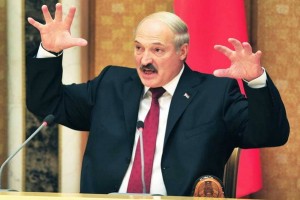Point of view: Russia expects to back Belarusan economy regardless of all ifs and buts

Early into the election campaign in Belarus, the Kremlin has already demonstrated support for Lukashenka at political and international levels.
However, the Russian leadership has signaled to the Belarusian authorities that their financial support will be very limited at the first stage and only if economic situation seriously deteriorates. Nevertheless, the Kremlin is likely to support Lukashenka regardless of ifs and buts.
Last week, the presidents of Russia and Belarus met in Ufa, where they discussed the Russia-Belarusian relations. During the meeting, the presidents focused on bilateral cooperation in trade, economy and investment, talked about deepening cultural and humanitarian contacts and cooperation within the framework of the Union State of Russia and Belarus, the Customs Union and the Eurasian Economic Union.
In the first days of the presidential campaign in Belarus, the Russian leadership has demonstrated symbolic support for President Lukashenka by stepping up the level of Belarus’ participation in international organisations. For example, at the meeting with Lukashenka, President Putin emphasised that “the issue of upgrading Belarus’ status in the Shanghai Cooperation Organization from a partner for dialogue to observer has been practically settled”.
In response, the Belarusian authorities said they were prepared to enhance their participation in the settlement of the conflict in Ukraine, which, was most likely coordinated with the Kremlin. In particular, in an interview with Russia-24 Foreign Minister Makei said, “We are ready not only to provide the base for negotiations, but also, if necessary, to become the secretariat, as we have been asked by some of our partners”.
Nevertheless, Belarus’ major interest in Russo-Belarusian relations is to receive guarantees of Russia’s support for Belarusian economy during the presidential campaign. While meeting with Putin, Lukashenka emphasised how important it was to resolve bilateral cooperation issues in financial and economic spheres in the near future. “We have long been confronted with this, you – may be not to the same extent as now, – so we need to discuss [...], what further steps we have to make to overcome the negative trends that may occur in the near future”, he said.
According to Putin’s Press Secretary Dmitry Peskov, during the bilateral meeting in Ufa, the presidents also discussed financial and credit cooperation between Minsk and Moscow, however, without detailed consideration. Meanwhile, during the Russian Government meeting, Russian Finance Minister Siluanov confirmed, that Russia was ready to provide financial support for Minsk and transfer the second tranche of the loan – a total of USD 760 million: “[the decision] will be approved today and the transfer will be made in July”.
That said, according to Siluanov, Belarus had requested additional USD 3 billion loan from Russia, allocation of which had been questioned by the Minister: “we shall continue to work on this request, taking into consideration the implementation of the previous programme, which has not been implemented in full”. So far, Belarus has not provided any official comments regarding her request. Most likely, she has warmed up the numbers in order to have some room for manoeuvre during the negotiations.
Official Minsk expects the Kremlin to ‘understand’ and to refinance previous Russian loans, which are due in 2015. In 2015, Moscow has already allocated USD 110 million loan for Belarus to repay the interest on the Russian loan issued in 2010.
Simultaneously, the Kremlin has bolstered pressure on the Belarusian authorities regarding ‘privatisation’ of attractive Belarusian assets by Russian businesses, such as Minsk Wheel Tractor Plant.
The Kremlin intends to support Lukashenka in the elections, even thought it seeks to increase the price of such support. Russia hopes to use Belarus’ economic difficulties to tighten control over the Belarusian economy and privatize the most attractive Belarusian state assets. Nevertheless, Russia is likely to provide the minimum required support for the Belarusian economy regardless of all ifs and buts.
-
03.01
-
07.10
-
22.09
-
17.08
-
12.08
-
30.09








































